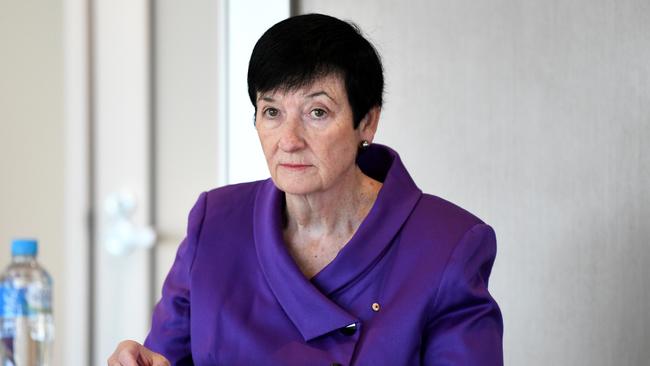Business backs ‘clever country’ boost in Hong Kong migration
Business groups have backed Scott Morrison’s push to entice Hong Kong companies into relocating to Australia.

Business groups have backed Scott Morrison’s push to entice Hong Kong companies into relocating to Australia, with hopes entrepreneurs will leave the Asian city to help build the nation’s depleted manufacturing sector.
Business Council of Australia chief executive Jennifer Westacott said Australia’s growth had been “built on Australia attracting new job creating investment and the best skilled people in the world”.
“Steps to make us a more competitive, attractive place to live and do business are exactly what we need,” Ms Westacott said.
“This is a smart move that will help boost Australian jobs by attracting some of the most skilled and best educated workers in the world and the new investment we’ll need as we emerge from the COVID-19 pandemic.”
The Prime Minister on Thursday unveiled his intention to introduce new incentives to attract “export-orientated Hong Kong-based businesses to relocate to Australia”.
“Particularly where they have a strong potential for future growth and employment of Australians,” Mr Morrison said.
The government will also provide a five-year visa with the potential for permanent residency for future Hong Kong applicants of temporary skilled visas.
“We will also put arrangements in place to ensure we focus on Hong Kong applicants to study and work in regional areas,” Mr Morrison said.
Council of Small Business Organisations Australia chief executive Peter Strong said the government should focus on encouraging manufacturing businesses to Australia. “To do it on the world stage, you are going to have to manage production with high wages,” he said.
“I would be looking at clever businesses in light manufacturing and make sure they don’t come in one area (but) those (areas) that will add value to local businesses and provide new markets to other local businesses.”
Industry Minister Karen Andrews has flagged the need to grow the manufacturing sector after the pandemic exposed vulnerabilities in Australia’s supply chain.
However, economist Saul Eslake said manufacturing contributed just 1 per cent of Hong Kong’s gross domestic product, compared with 6 per cent in Australia.
He said the professional expertise in Hong Kong was largest in areas where Australia was already strong, such as financial services and property development.
“Hong Kong itself doesn’t really do much manufacturing; it is not Hong Kong’s comparative advantage,” he said. “The only way it could assist manufacturing, and I wouldn’t dismiss this, is there is a lot of management and entrepreneurial talent in Hong Kong.
“And it could be that people from Hong Kong who have been applying that managerial talent to the management of manufacturing business in China … can bring those skills with them to Australia.
“But they probably wouldn’t be able to bring the asset base (of a manufacturing company based in mainland China).”
Australian Chamber of Commerce and Industry chief executive James Pearson said the government should streamline the skilled migration process. “A streamlined process that makes it easier, quicker and more affordable for them to get to, or stay in, Australia, than to (go to) other countries that are competing for the same talent pool,” he said.




To join the conversation, please log in. Don't have an account? Register
Join the conversation, you are commenting as Logout